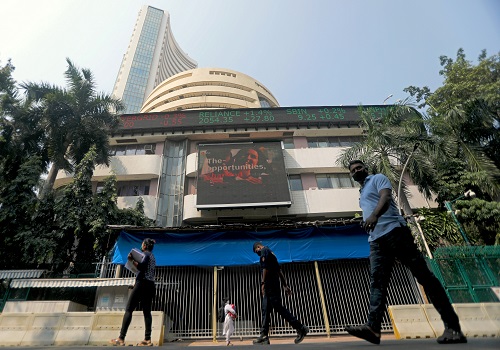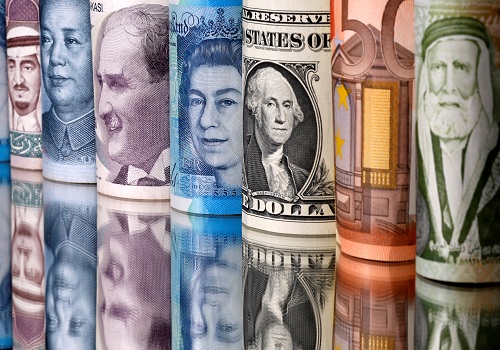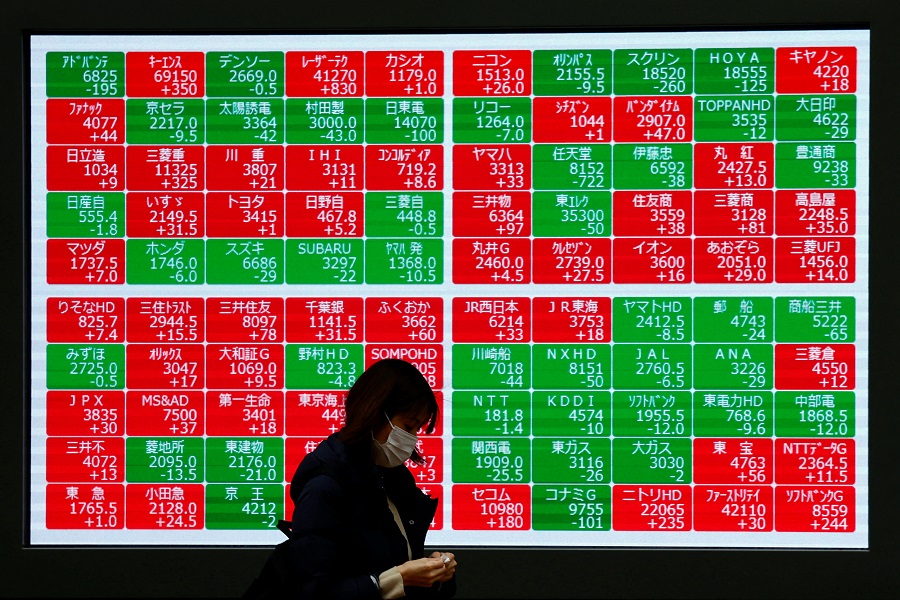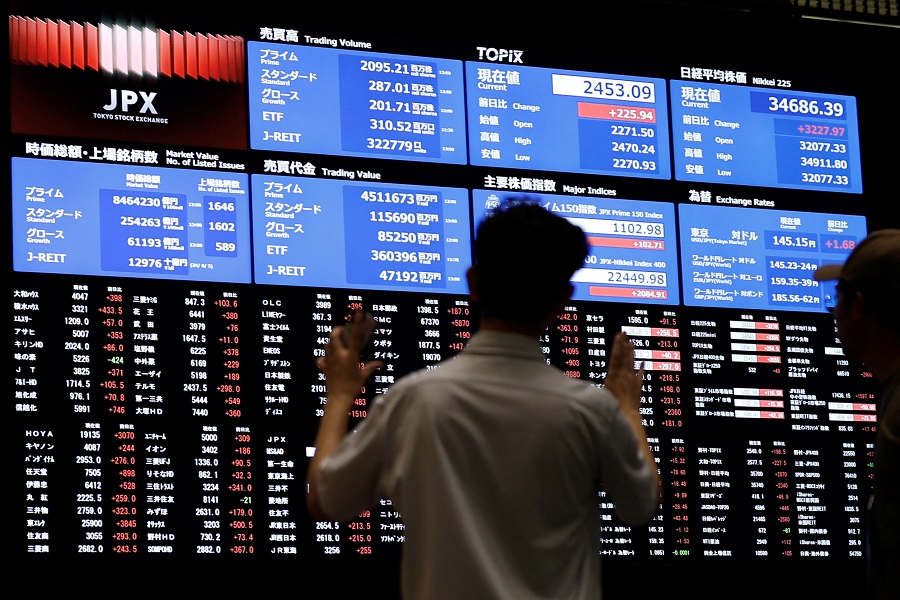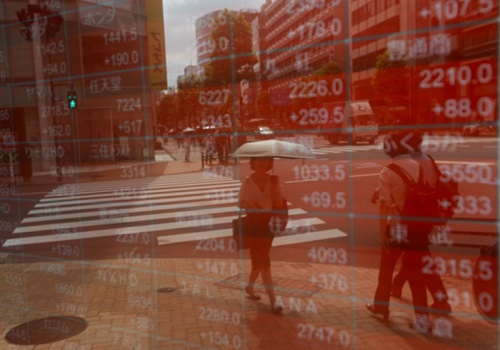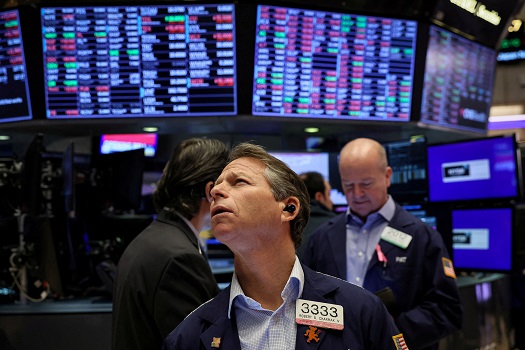World stocks end turbulent month higher as U.S. inflation data looms
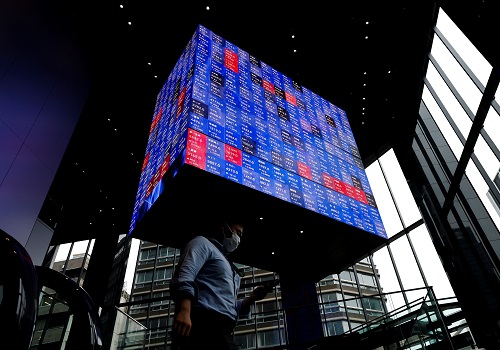
Follow us Now on Telegram ! Get daily 10 - 12 important updates on Business, Finance and Investment. Join our Telegram Channel
Global stocks rose on Friday and were set for a fourth straight month of gains despite a bout of heavy selling in early August, boosted by U.S. growth data that helped the dollar snap a weeks-long losing streak and kept bond markets on edge.
MSCI's world share index ticked 0.2% higher, heading for a 1.8% monthly gain, as Europe's Stoxx index touched a record intraday high in early dealings and Britain's FTSE 100 rose to a three-month peak.
U.S. stock futures also pointed to an extension of Wall Street's positive run, with Nasdaq contracts 0.7% higher and those tracking the S&P 500 index up 0.4%.
The stunning recovery from an early August sell-off reminiscent of October 1987's "Black Monday" came as traders priced a so-called Goldilocks scenario in which the U.S. economy keeps growing, but not so much to prevent interest rate cuts.
Money markets are confidently pricing the Federal Reserve's first 25 basis point cut of this cycle at its Sept. 18 meeting, with a 33% chance of a jumbo 50 bp reduction.
The U.S. economy grew faster than initially thought in the second quarter of this year because of strong consumer spending, and corporate profits, a report on Thursday showed.
An index of U.S. personal consumption expenditures (PCE) due later on Friday, meanwhile, is expected to show that the Fed's preferred inflation index rose 2.6% in July year-on-year, slightly more than the prior month but unlikely to raise alarm.
Pictet Asset Management co-head of multi-asset Shaniel Ramjee warned, however, that the current pattern of stocks and bonds rallying in tandem was unlikely to hold.
"We're seeing a bond market that is pricing in a lot of accommodation and an equity market that is reasonably supported by growth," he said.
Government bond markets soared in early August after a weaker-than-expected U.S. jobs report and a surprise Bank of Japan rate hike wreaked chaos in currency carry trades and drove heavy selling of risky assets.
The yield on the 10-year U.S. Treasury, at below 3.9% on Friday, was too low in the face of recent strong data, Ramjee said. Bond yields move inversely to prices.
Neil Birrell, chief investment officer at Premier Miton, said markets were in a difficult phase driven by short-term trading, with sentiment likely to swing with every new batch of significant economic data.
"If we get disappointment on anything, there will be risks arising again," he said.
DOLLAR STEADIES
The dollar steadied near a one-week high versus major peers on Friday, on track to snap a five-week losing streak although still heading for around a 2.5% monthly loss.
Against the yen, the dollar stood at 144.79, on track to lose more than 3% for the month, as pressure eased on the Japanese currency on the prospect of narrowing interest rate differentials.
Core inflation in Japan's capital Tokyo accelerated for a fourth straight month in August, data showed on Friday, with the 2.4% price increase signalling further BoJ rate hikes ahead.
The euro was flat at $1.108, having declined on Thursday after softer-than-expected German inflation data increased bets on further European Central Bank rate cuts.
U.S. government bonds were little changed ahead of Friday's PCE report. The 10-year Treasury yield slipped 1 bp to 3.85%.
Germany's equivalent bund yield was 3 bps lower at 2.257%.
Elsewhere in markets, MSCI's broadest index of Asia-Pacific shares outside Japan rose 0.7%, set for a 2.2% monthly increase.
Japan's Nikkei, following its early month collapse, was set to lose 1.6% for the month but rose 0.3% on Friday.
Brent crude oil futures declined by 0.2% to $79.80 a barrel.
Spot gold was steady at $2,520 an ounce, set for a 2.7% gain for the month, helped by the weaker dollar. [GOL/]












 320-x-100_uti_gold.jpg" alt="Advertisement">
320-x-100_uti_gold.jpg" alt="Advertisement">


